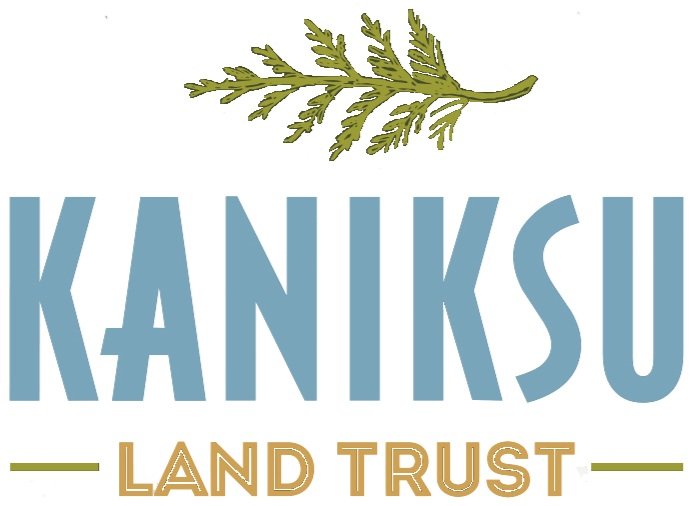A SPOON TO LAST A LIFETIME
Matt carving a spoon towards himself, an advanced technique Shaun taught him in a way that is safe. People can learn this method at the class, but are not advised to carve toward themselves without proper form.
How do we find ourselves in the great work of conservation? For Matt Honsinger, it started with spoons.
“Learning to carve a spoon is about connecting with the object in front of you and connecting with the trees.” He says, “Learning these skills makes you look at the forest with a different lens. When you see that down birch tree, you see a way to repurpose a part of it into a beautiful spoon that can last a lifetime.”
Matt’s interest in spoon carving started a few years ago when he became interested in green woodworking. Learning from books and YouTube videos only got him so far and, frankly, many cut fingers. He was going to take a spoon carving class at a folk school back East when he found one right in his backyard.
He had heard about Shaun Deller, a well-known local woodworking teacher, and was eager to take his carving skills to the next level. He signed up for last year’s Introduction to Spoon Carving at Kaniksu Folk School. “It was a transformative experience to say the least. I had many “aha” moments that allowed me to expand my skill set and truly reach the next level.”
Matt didn’t just reach the next level, he excelled many levels beyond. He carved over 200 spoons in the next year. Inspired by Shaun, he has delved into more advanced styles like chip carving, a Swedish style of finishing and decorating, and kolrosing, an old English technique to score and decorate wood.
“I had a frustration with our disposable culture coupled with an interest in learning to make things that last.”
He began noticing the disposable nature of our culture and thinking of how our ancestors used to make things. If they needed a spoon, they would make one from materials around them and if that spoon accidentally broke, they would make another. It was something everyone knew how to do.
When looking at the journey of a disposable plastic spoon from oil pumped out of the ground to processing and shipping only to be used once and than to sit rotting in a landfill one begins to wonder how we arrived at the conclusion that making spoons that way was easier.
We not only are disconnected from that process but the impact on the land of that disposable spoon is way greater and less deep than the experience of carving and eating with your own wooden spoon. There is nothing quite like it.
Matt’s enthusiasm for spoon carving, woodworking and traditional skills in general is infectious. You may have seen him carving away at one our our folk school community events sharing his interest in the craft and history like the sailor’s spoons found in the old Vasa Swedish ship preserved in the North Baltic Sea or the Welsh love spoons that were apart of an old time courting process.
This Saturday, Kaniksu Folk School is excited and honored that Matt will be co-teaching the Introduction to Spoon Carving class with Shaun Deller at Pine Street Woods. Registration is still open for this amazing course and who knows what could be in store for you to learn and possibly to find your next calling as a steward of these woods.
Click HERE to register for Introduction to Spoon Carving and other folk school classes.

